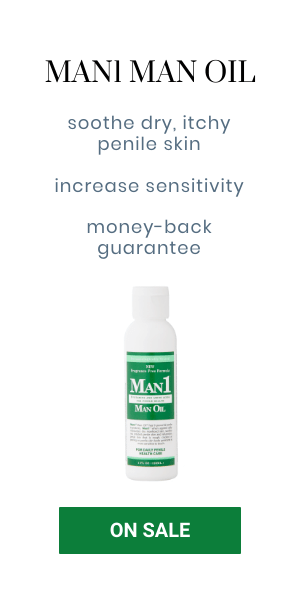Urinary tract infections (UTI) are the second most common type of infection in humans. While they are more common in women, men can also develop UTI. Because a UTI can cause considerable penis pain, as well as other, more serious complications, understanding what can cause it – as well as how to avoid it – is important to maintaining overall penis health.
What is a UTI? A urinary tract infection is a bacterial infection occurring in any part of the urinary system, usually caused by the e. Coli bacterium. Both men and women can be affected; while they occur more frequently in women, they are generally more serious in men. The common symptoms of UTI in men include:
– Penis pain and/or a burning sensation during urination;
– Frequent and urgent need to urinate;
– Cloudy or dark-colored urine;
– A strong, unpleasant smell to the urine;
– Rectal pain;
– Abdominal pain and/or body aches and pains;
– Fever.
Common causes of UTI in men
Some of the most common causes of urinary tract infections in male patients are as follows:
1) Poor hygiene. As mentioned above, most urinary tract infections are caused by e. Coli, which is found in human feces. Neglecting personal care practices such as regular bathing and laundering of the clothing can allow the introduction of bacteria into the urethral opening of the penis.
2) Sexual intercourse. During sex, men may come in contact with bacteria from a partner’s body, especially during anal penetration. Barrier protection should always be used during sex to limit exposure to the bacteria, as well as to avoid spreading other sexually transmitted diseases.
3) Diabetes. Men (and women) who have diabetes have a much greater risk of developing frequent infections, as high levels of blood glucose can irritate and damage the urethral tract.
4) Spermicides. Chemical spermicides used as birth control can cause skin irritation, which increases the risk of bacterial infections.
5) Condom use. Using a condom increases the friction during sexual intercourse, leading to irritation. However, condoms should still be used, as the potential for passing on a sexually transmitted infection is a greater concern.
6) Catheter use. Men who use bladder catheters to assist with urination (often used for men with an enlarged prostate who have difficulty emptying the bladder) run the risk of introducing bacteria into the urethral tract.
Treatment and prevention of urinary tract infections in men.
If left untreated, UTI can progress to the kidneys and cause serious complications, so men who develop symptoms should waste no time in making an appointment with a doctor. Most urinary tract infections can be resolved through use of prescription antibiotics. Men should be sure to take the full course of antibiotics, even if they feel better before using all of the prescribed medication. Otherwise, the bacteria may not be fully eliminated and the infection may return.
As far as preventing UTI, doctors recommend the following:
– Drinking plenty of water – at least 8 glasses per day.
– Urinating immediately following sex – the flow of urine may help to remove any bacteria present around the urethral opening.
– Keeping the penis clean – men who are uncircumcised should be especially careful about cleaning underneath the foreskin.
– Avoiding caffeine and alcohol, which can irritated the bladder.
– Avoiding spraying any deodorants or fragrances in the genital area.
– Taking showers instead of baths.
– Wearing loose-fitting, cotton underwear.
– Avoiding holding urine for long periods of time.
Adding a penis health crème (health professionals recommend Man1 Man Oil) to the personal care routine may also help reduce the risk of urinary tract infections. A quality formula should contain high-end moisturizers and emollients that soften the skin and prevent dryness and cracking, which encourage the presence of bacteria on the skin. Products that are enriched with immune-boosting vitamin C, as well as antibacterial vitamin A, may also provide an extra layer of protection, as well as leaving the penile skin supple, healthy and youthful in appearance.
